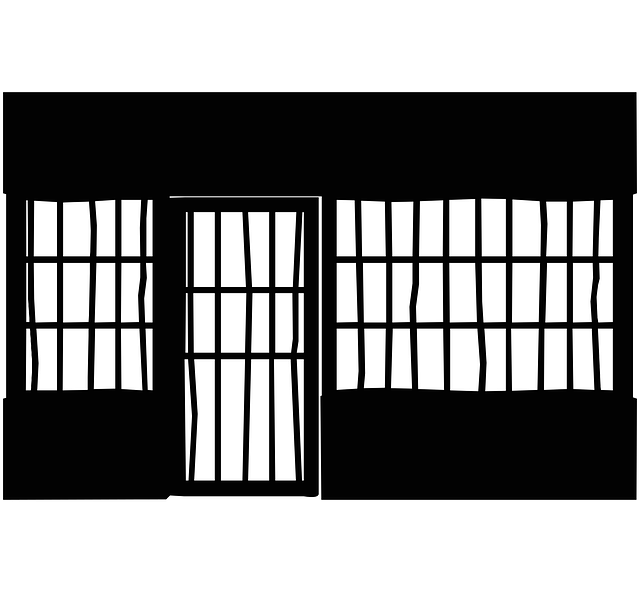Drug interactions and DUI laws significantly influence employment opportunities, especially for roles with public safety responsibilities. These factors are crucial in workplace screening due to their impact on cognitive performance and motor skills required for safe work. Despite equal opportunity mandates, criminal records, particularly those involving drug interactions or DUI convictions, often lead to discrimination in hiring, affecting low-wage sectors. Clearing these records requires understanding complex legal processes and meeting eligibility criteria, such as passing drug tests. Employers may offer second chances if applicants demonstrate accountability and personal growth. Knowledge of local Drug Interaction and DUI laws is vital for compliance and building trust with employers. Real-world examples show successful navigation leading to positive outcomes, like a veteran securing a social work role after clearing his record and a young professional having charges dismissed after proving innocence.
In today’s competitive job market, understanding the employment impact of drug interaction and DUI (driving under the influence) records is crucial. This comprehensive guide delves into the intricate interplay between these legal issues and career prospects. We explore state-mandated DUI laws and their effects on individuals’ employability, focusing on how criminal records, particularly those related to drug interactions and DUIs, can hinder or enhance job opportunities. By understanding the legal processes involved in record clearance and employing effective strategies, individuals can navigate employment paths post-DUI conviction.
- Understanding Drug Interaction and DUI Laws: A Basic Framework
- The Impact of Criminal Records on Employment Opportunities
- Clearing Records: Legal Processes and Eligibility Criteria
- Strategies for Success: Navigating Employment After a DUI
- Case Studies: Real-World Examples of Record Clearance Success
Understanding Drug Interaction and DUI Laws: A Basic Framework

Drug interactions and DUI (Driving Under the Influence) laws are critical aspects of employment impact clearing records, as they significantly influence an individual’s eligibility for certain roles, especially those involving public safety or sensitive information. Drug interaction refers to how different substances, whether prescription medications or illicit drugs, can alter a person’s physiological functions and cognitive abilities. This is particularly relevant in occupational settings where clear judgment, rapid decision-making, and fine motor skills are essential.
DUI laws, on the other hand, are designed to protect public safety by preventing individuals under the influence of drugs or alcohol from operating machinery or vehicles. Employment screening processes often include thorough checks of an applicant’s history regarding drug use and compliance with DUI laws. Understanding these legal frameworks is crucial for employers and job seekers alike, as it ensures that workplaces maintain a safe environment and comply with regulatory standards while also offering second chances to individuals who have successfully addressed their substance abuse issues.
The Impact of Criminal Records on Employment Opportunities

Having a criminal record can significantly impact an individual’s ability to find employment, especially in industries with stringent background checks. In many cases, employers often face legal obligations when it comes to hiring individuals with a history of drug interactions or DUI convictions, as these are governed by specific laws like Drug Interaction and DUI Law. These laws vary by region, but they typically mandate that employers provide equal opportunities regardless of past criminal behavior, unless the crime is directly relevant to the job duties.
Despite this, many employers still discriminate against applicants with criminal records, leading to limited prospects for reintegration into the workforce. This bias can be particularly harsh for low-wage jobs or positions in fields like retail, hospitality, and transportation, which often require extensive background screenings. As a result, individuals with past legal issues may face an uphill battle when seeking stable employment, requiring additional support and resources to overcome these barriers.
Clearing Records: Legal Processes and Eligibility Criteria

Clearing records, particularly in cases involving drug interactions and DUI (Driving Under the Influence) law, is a legal process that offers individuals a chance at a fresh start. This procedure varies by jurisdiction but generally requires meeting specific eligibility criteria. For instance, many regions mandate a period of clean living, often demonstrated through negative drug tests, to be eligible for record clearance or expungement.
The complexity of these cases lies in the intricate interplay of drug interaction and DUI laws, which can differ significantly from state to state. Individuals seeking to clear their records must navigate these legal nuances, ensuring they meet all requirements. This process often includes careful documentation, thorough legal research, and possibly the assistance of legal professionals to ensure the best outcome.
Strategies for Success: Navigating Employment After a DUI

Navigating employment after a DUI can be challenging, but with thoughtful strategies, it’s possible to overcome this obstacle. First, understand that many employers are willing to give second chances, especially if you’ve taken proactive steps to address your mistake. One effective strategy is to be transparent about your past and demonstrate personal growth through counseling or community service. This shows a commitment to responsible behavior and can help dispel concerns about repeat offenses.
Additionally, focusing on skills gained from previous employment, education, or personal projects can be valuable. Highlighting these strengths during interviews demonstrates resilience and adaptability. It’s also crucial to familiarize yourself with local Drug Interaction and DUI laws to ensure compliance and avoid further legal issues. This proactive approach not only maintains your employability but also instills confidence in potential employers.
Case Studies: Real-World Examples of Record Clearance Success

In the realm of employment impact and record clearance, real-world examples illustrate the successful navigation of drug interaction and DUI law hurdles. One such case involves a former military veteran who, after serving his country, faced challenges finding employment due to a past DUI conviction. Through a dedicated effort to clear his record, he participated in a rehabilitation program, successfully completed community service, and engaged with legal professionals specializing in DUI law. These measures resulted in the expungement of his criminal record, allowing him to secure gainful employment as a social worker, showcasing a positive “transformative outcome.”
Another compelling story is that of a young professional who, after being accused of drug interaction leading to a motor vehicle accident, feared the long-term implications on his career. With access to legal resources and advocacy groups focused on drug-related cases, he fought to prove his innocence and clear his name. The outcome was not only the dismissal of charges but also a renewed sense of hope and a clean slate for future employment opportunities. These case studies highlight the profound impact of record clearance initiatives, demonstrating that with the right support, individuals can overcome legal barriers and secure brighter futures in their chosen professions.
In understanding the intricate relationship between drug interaction, DUI laws, and employment opportunities, it’s clear that clearing records plays a pivotal role in second chances. By navigating the legal processes and meeting eligibility criteria, individuals with a history of DUI can strategically position themselves for success. Case studies demonstrate that with the right approach, it is possible to overcome these barriers and find fulfilling employment, transforming lives and breaking down societal constraints.






